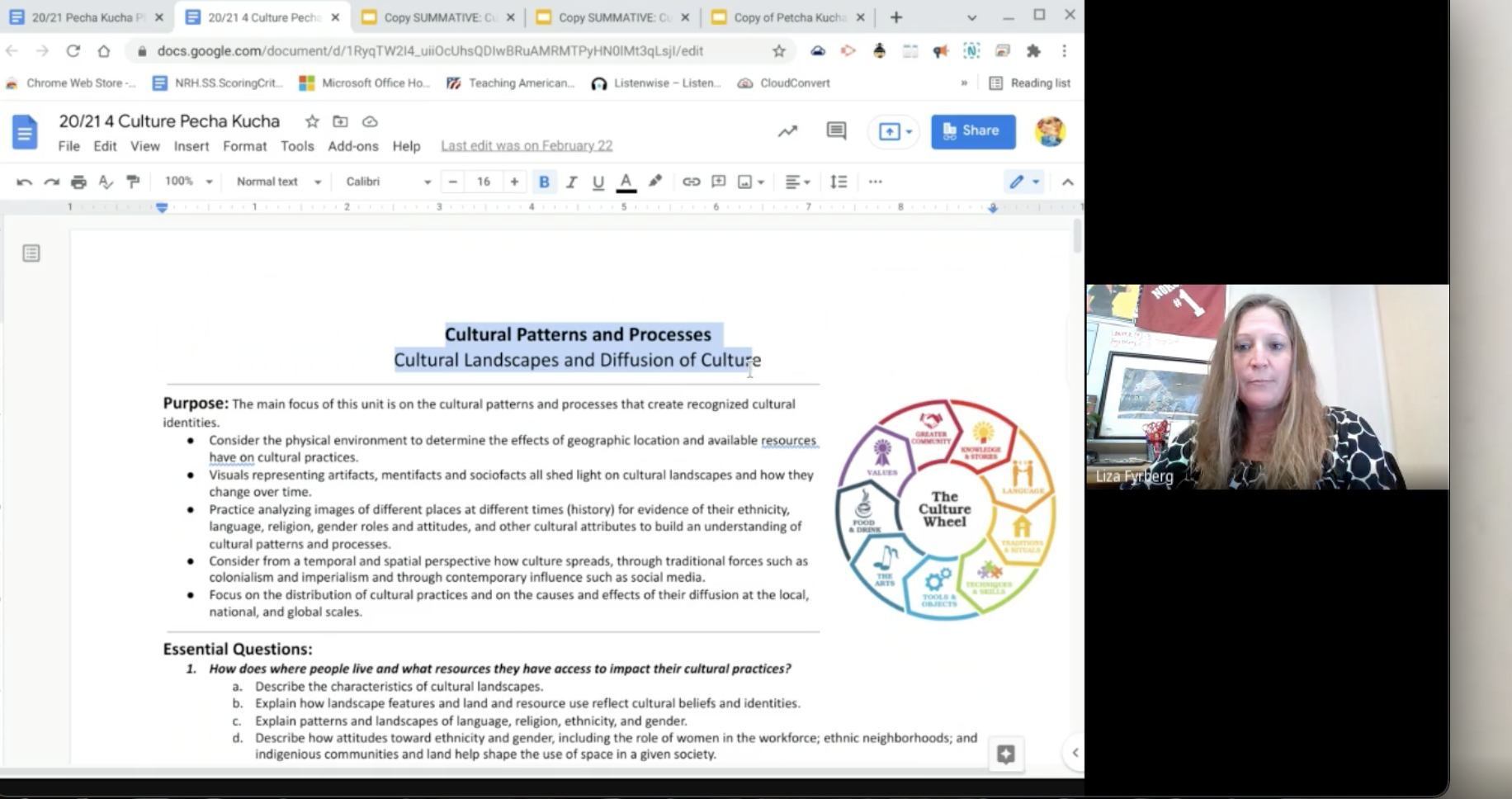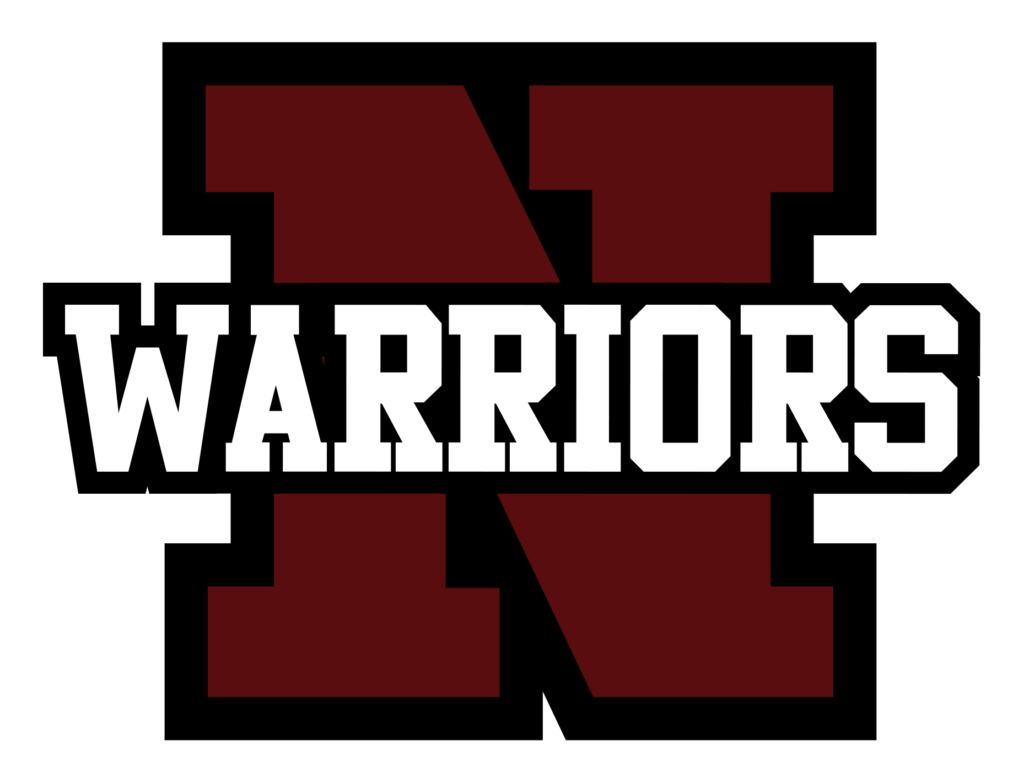Professional Development in the Covid Era
Collaboration, Risk-Taking, and Professional Development at Nokomis Regional High
At Nokomis Regional High in central Maine, the original plan for the 2020-21 school year called for intensive staff development around project-based learning (PBL), which was an important element in the school’s work to improve outcomes for all students. Unfortunately, the pandemic derailed the school’s ability to meet in person and the opportunity to provide teacher release time via substitutes. It also forced every teacher to have to rethink every aspect of their standard classroom practice, adjusting to remote and hybrid teaching models. The option to delay a deep-dive into PBL until the following year seemed reasonable, even enticing. However, educators were determined not to lose a year of professional growth and forged ahead despite the pandemic.

GSP supported the work at Nokomis Regional High through close collaboration with the principal, department leaders, and the instructional coach, who designed meeting agendas and customized resources and templates. GSP also supported strategic planning by the school leadership team and worked remotely with teachers to provide guidance and feedback on project-based learning units to problem solve through the evolving challenges of the year.
Nokomis educators recommitted to exploring and experimenting with project-based learning (PBL), even as they worked through the challenges of remote and hybrid classes, social distancing, and Covid-19 safety protocols. While PBL was relatively new to many teachers at Nokomis, it was central to the school’s commitment to providing more effective learning opportunities for students. Not wanting to lose a year of professional growth, we collaboratively rethought our strategies and approaches, which included:
CLEAR COMMUNICATION, EXPECTATIONS & DELIVERABLES
Every teacher would attempt to design and implement a project-based learning unit or series of lessons to start the year and then again by spring.
AUTONOMY & RISK TAKING
Teachers had the freedom to take risks in developing new units and assessments, while still ensuring that all students met the common standards of a proficiency-based system.
OPTIONAL LEARNING OPPORTUNITIES
In-person and remote learning opportunities were available for teachers during the summer of 2020; recorded sessions could be viewed asynchronously by teachers who couldn’t attend.
FOCUSED & EFFICIENT PD
Professional development was focused on key elements of PBL and key resources, such as unit planning templates, were provided; this limited whole-school professional development while also enabling teachers to learn by doing, rather than just by listening.
COLLABORATION AND SUPPORT
Monthly professional learning communities focused on PBL allowed teachers to share their ideas, hear from colleagues, give and receive feedback, and support each other across the year.
INTERDISCIPLINARY LEARNING
Grouping teachers across a range of subject areas and grade-levels in each professional learning community promoted new thinking and fostered connections in new ways.
INTENSIVE COACHING
In-person or remote 1:1 coaching was available for all teachers who wanted additional support as they developed and worked on their project-based learning units.
MEASURING AND CELEBRATING SUCCESS
Staff surveys were used to measure and celebrate our successes. 91% of staff said their spring PBL unit was successful enough to use again next year.
Given clear guidelines, choice-based professional development, ongoing time to collaborate with peers, and the freedom to take risks, the entire Nokomis teaching staff experimented with project-based learning in an inspiring number of ways. A few examples include:
Project:
Impostor Poems
This project-based learning unit was implemented by Lizzie Levasseur, an English teacher at Nokomis Regional High.
What Is an Impostor Poem?
An impostor poem is a pre-existing poem modified by a student to include new language written in the style and voice of the original author. The goal is to study and analyze the original work until it can be imitated so well that other readers can’t distinguish between what was written by the original author and what was written by the student.
The Power of Trying Something New
“In the imposter poems unit, I was able to expose my 102 students to a plethora of poetry, but the nice thing about this unit was that it didn’t ask for students to simply write an essay. While they did write a reflection, it was much more informal and the true learning came from analyzing poems so that they could replicate the poet’s writing and style. This new and engaging unit made it so that more of my students enjoyed the poetry we read and were able to select a poet that interested them for their final project.”
Effectively Pushing Student Learning
“I feel that this unit was really effective in pushing student learning. Instead of annotating and analyzing a poem on their own and submitting their analysis, students created something. They used their analysis skills to publish, which is such a rigorous and a more authentic task. They were pushed to come up with words that an author would have used and use punctuation the way their poet would have and write in a style that they had analyzed. They created some really fantastic pieces and the looks on their faces when they fooled the majority of the class was priceless.”
Project:
PechaKucha

This project-based learning unit was implemented by Liza Fyrberg, a social studies teacher at Nokomis Regional High.
What Is a PechaKucha?
A PechaKucha is a storytelling format students can use to create presentations. Presentations are made up of 20 slides; each slide is shown for a duration of 20 seconds, giving the student a short period to explain or comment on each slide. To learn more about how Liza Fyrberg used the PechaKucha in her class, please watch the video above.
Student Feedback: What Are You Most Proud of in This Project?
- “I’m proud of how I was able to bring this sensitive topic to light and inform more people of a serious issue.”
- “I am most proud of how I analyzed the architecture and relation to Finland’s gender gap.”
- “The information about ethnicities and races, the diversity in Brazil is unique to how everyone got there.”
- “I am proud of the way it looked and all of the info that I added into it. I want people to notice all the hours that I spent trying to make my Pecha Kucha the best it could be.”
- “I’m most proud that I didn’t really stutter as much as I thought I was going to. I liked how I added a lot of information and that I found pictures that went along with what I was saying. When people look at this project, I would like people to notice the work I put into it”
Blog: Did My Students Really Learn it?
This blog was written by Ashley Clark, who teaches high school science at Nokomis Regional High.
Excerpt:
“On the last day of school, I sat at my desk staring out at desks six feet apart and a whiteboard that had barely been used. My eyes fell to a student’s project submitted at the end of the year. The homemade children’s book in front of me—titled, “Sunny’s Life: The Life Story of a Salamander”—was made by one of my environmental science students. This book made me break into a giant grin. This book was not my idea of a summative assessment. Originally, I had developed a grand plan of having students develop a biodiversity assessment using quadrant methods and compile the information to educate our community more about our local environment. Unfortunately, the chaotic end of the school year and pace of hybrid learning did not allow for such a grand plan, so with confidence in my students I turned to them. I presented the dilemma and explained that our original plan would likely not fit into the timeframe left, so we brainstormed other ways they could show their learning while also avoiding the cliché slideshow or research paper. Together, we came up with the idea of paring down the original project to a children’s book with specific criteria to ensure the students showed their learning of the content I had already planned to assess.”
Listen to Mary Nadeau, the principal of Nokomis Regional High in Newport, Maine, talk about how educators take learning outside of the traditional classroom and use project-based learning to provide impactful learning experiences to all students.
Interested in learning more? Let's talk.
Personalized, equitable, and student-centered education is too important to put aside; together, we can improve learning for all your students.
Contact Us

